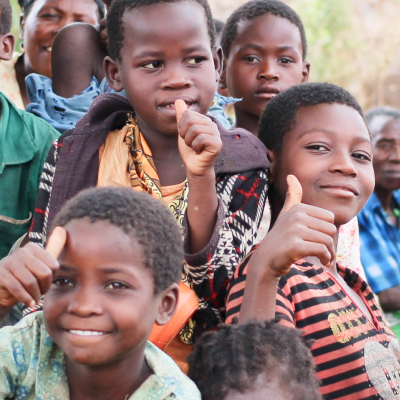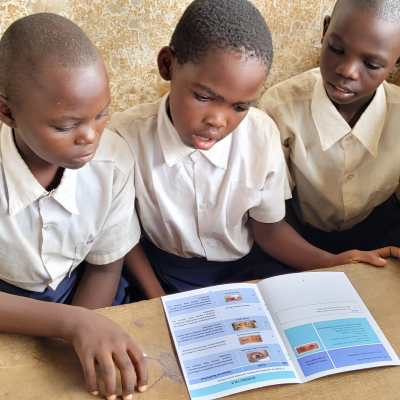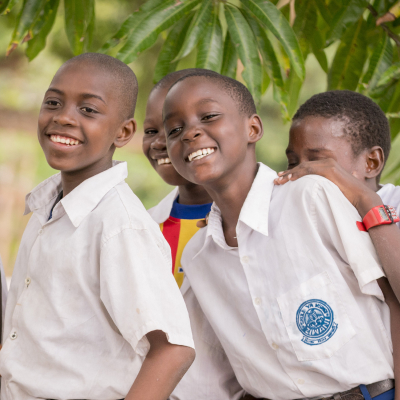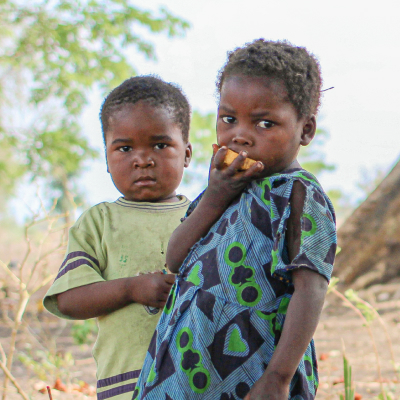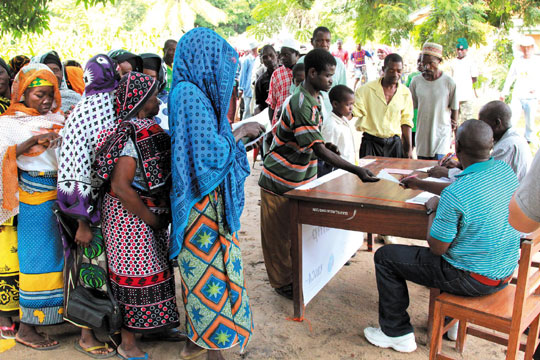About an hour bus ride from the downtown Mtwara, Tanzania took us to the Mtiniko Dispensary, a village health center, and it reminded me of a waiting room at a bus terminal in a rural village. Underneath the tin plated roof of the health center gathered over 70 people
On April 11, Heart to Heart Foundation opened a trachoma surgery camp here. “Anyone with eye symptoms, please come” was the announcement made by the village leaders, and it ended up summoning patients from other far-fetched villages. Everyone came with the aid of a cane or supported by holding onto a child’s arm. Saddachi, 45, who stood leaning against the mud column on the center wall was also holding a cane. “My vision is very blurry and it’s very difficult to work,” said the man. “People in the village told me about the surgery camp and I came.”
There was a familiar face, too. Lasid, whose parents lost their vision to trachoma and who’s now the breadwinner of his family, brought his parents to the camp. “I am happy. I hope that my mom receives a good surgery and heals well,” the boy could not hide his excitement. The village leader of Mtiniko, Mohamedi, 62, said, “People started making the crowd since 8 in the morning, when the camp was scheduled to open at 10. Some people walked three hours to come here.”
Attended by four physicians, the camp undertook eye exams, individual treatments and operations.
On the trunk of the colossal mango tree more than 10-meter tall was attached a handwritten eye exam board. Asha aged 45 just went through her eye test and proceeded to the individual care booth with her test result in hand. “My eye’s hurting inside and I couldn’t really see the board,” said the woman. She walked about 50 meters to the health center supported by her child.
The atmosphere inside the center was quite serious. Sitting on the stool, Samue, 42, said, “I think my eyes got a lot of problems. I can’t really see well.” A 33-year ophthalmologist Tumaini said, “You have lots of dots in your eye. It’s one of the symptoms of trachoma. You don’t really need a surgery. Some medication will do,” and handed out some antibiotics.
It was an event dubbed trachoma surgery camp, but quite a few came with eye problems other than trachoma. A physician Leziwa at the camp (34, Newala Hospital) examined an elderly’s eyes and said “you have a cataract in your left eye. I will make a referral for you to receive treatment at another regional hospital.”
When a diagnosis of trachoma is determined, the patient is immediately led to an operation bed. The operation proceeds on a medical cot set up in the back of the center with just the face of patient covered with green garment. In about ten minutes, it is done. Hasane, 45, comes off the bed and relieved, he sank to the floor. His dark skin made the dressing on his operated right eye even prominent. “I walked from Maranje Village, about three hours. The operation hurt a lot but I’m now very grateful,” said he.
A commotion suddenly took attention in the otherwise smoothly proceeding camp. Rasid’s mom, Amina burst into tears while waiting for her turn and ran away. Choi Joo Yong, country director of Heart to Heart Foundation Tanzania branch commented that “The locals here are very afraid of getting a knife on their body, and some oppose it for the reason of their indigenous religion. We talk with the village leader and other people to minimize any cultural gap so that they can feel comfortable about getting the operation.” A surgeon at the camp said, “We had 11 people planned for trachoma surgery but three ended up opposing and only 8 got it.”
We met Rasid again as the camp was finishing up for the day. His mom did not return. “There will be another camp. We will talk to her and make sure she gets her operation,” promised a staffer of Heart to Heart Foundation, and the boy smiled, with the antibiotics held tight in his hands.
